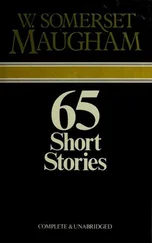Генри Джеймс - Some Short Stories
Здесь есть возможность читать онлайн «Генри Джеймс - Some Short Stories» — ознакомительный отрывок электронной книги совершенно бесплатно, а после прочтения отрывка купить полную версию. В некоторых случаях можно слушать аудио, скачать через торрент в формате fb2 и присутствует краткое содержание. Жанр: foreign_prose, foreign_antique, на английском языке. Описание произведения, (предисловие) а так же отзывы посетителей доступны на портале библиотеки ЛибКат.
- Название:Some Short Stories
- Автор:
- Жанр:
- Год:неизвестен
- ISBN:нет данных
- Рейтинг книги:4 / 5. Голосов: 1
-
Избранное:Добавить в избранное
- Отзывы:
-
Ваша оценка:
- 80
- 1
- 2
- 3
- 4
- 5
Some Short Stories: краткое содержание, описание и аннотация
Предлагаем к чтению аннотацию, описание, краткое содержание или предисловие (зависит от того, что написал сам автор книги «Some Short Stories»). Если вы не нашли необходимую информацию о книге — напишите в комментариях, мы постараемся отыскать её.
Some Short Stories — читать онлайн ознакомительный отрывок
Ниже представлен текст книги, разбитый по страницам. Система сохранения места последней прочитанной страницы, позволяет с удобством читать онлайн бесплатно книгу «Some Short Stories», без необходимости каждый раз заново искать на чём Вы остановились. Поставьте закладку, и сможете в любой момент перейти на страницу, на которой закончили чтение.
Интервал:
Закладка:
At last it came to be the case that we all found the closed door more often than the open one; but even when it was closed Brooksmith managed a crack for me to squeeze through; so that practically I never turned away without having paid a visit. The difference simply came to be that the visit was to Brooksmith. It took place in the hall, at the familiar foot of the stairs, and we didn't sit down, at least Brooksmith didn't; moreover it was devoted wholly to one topic and always had the air of being already over—beginning, so to say, at the end. But it was always interesting—it always gave me something to think about. It's true that the subject of my meditation was ever the same—ever "It's all very well, but what will become of Brooksmith?" Even my private answer to this question left me still unsatisfied. No doubt Mr. Offord would provide for him, but what would he provide?—that was the great point. He couldn't provide society; and society had become a necessity of Brooksmith's nature. I must add that he never showed a symptom of what I may call sordid solicitude—anxiety on his own account. He was rather livid and intensely grave, as befitted a man before whose eyes the "shade of that which once was great" was passing away. He had the solemnity of a person winding up, under depressing circumstances, a long-established and celebrated business; he was a kind of social executor or liquidator. But his manner seemed to testify exclusively to the uncertainty of our future. I couldn't in those days have afforded it—I lived in two rooms in Jermyn Street and didn't "keep a man"; but even if my income had permitted I shouldn't have ventured to say to Brooksmith (emulating Mr. Offord) "My dear fellow, I'll take you on." The whole tone of our intercourse was so much more an implication that it was I who should now want a lift. Indeed there was a tacit assurance in Brooksmith's whole attitude that he should have me on his mind.
One of the most assiduous members of our circle had been Lady Kenyon, and I remember his telling me one day that her ladyship had in spite of her own infirmities, lately much aggravated, been in person to inquire. In answer to this I remarked that she would feel it more than any one. Brooksmith had a pause before saying in a certain tone—there's no reproducing some of his tones—"I'll go and see her." I went to see her myself and learned he had waited on her; but when I said to her, in the form of a joke but with a core of earnest, that when all was over some of us ought to combine, to club together, and set Brooksmith up on his own account, she replied a trifle disappointingly: "Do you mean in a public-house?" I looked at her in a way that I think Brooksmith himself would have approved, and then I answered: "Yes, the Offord Arms." What I had meant of course was that for the love of art itself we ought to look to it that such a peculiar faculty and so much acquired experience shouldn't be wasted. I really think that if we had caused a few black-edged cards to be struck off and circulated—"Mr. Brooksmith will continue to receive on the old premises from four to seven; business carried on as usual during the alterations"—the greater number of us would have rallied.
Several times he took me upstairs—always by his own proposal—and our dear old friend, in bed (in a curious flowered and brocaded casaque which made him, especially as his head was tied up in a handkerchief to match, look, to my imagination, like the dying Voltaire) held for ten minutes a sadly shrunken little salon. I felt indeed each time as if I were attending the last coucher of some social sovereign. He was royally whimsical about his sufferings and not at all concerned—quite as if the Constitution provided for the case about his successor. He glided over our sufferings charmingly, and none of his jokes—it was a gallant abstention, some of them would have been so easy—were at our expense. Now and again, I confess, there was one at Brooksmith's, but so pathetically sociable as to make the excellent man look at me in a way that seemed to say: "Do exchange a glance with me, or I shan't be able to stand it." What he wasn't able to stand was not what Mr. Offord said about him, but what he wasn't able to say in return. His idea of conversation for himself was giving you the convenience of speaking to him; and when he went to "see" Lady Kenyon for instance it was to carry her the tribute of his receptive silence. Where would the speech of his betters have been if proper service had been a manifestation of sound? In that case the fundamental difference would have had to be shown by their dumbness, and many of them, poor things, were dumb enough without that provision. Brooksmith took an unfailing interest in the preservation of the fundamental difference; it was the thing he had most on his conscience.
What had become of it however when Mr. Offord passed away like any inferior person—was relegated to eternal stillness after the manner of a butler above-stairs? His aspect on the event—for the several successive days—may be imagined, and the multiplication by funereal observance of the things he didn't say. When everything was over—it was late the same day—I knocked at the door of the house of mourning as I so often had done before. I could never call on Mr. Offord again, but I had come literally to call on Brooksmith. I wanted to ask him if there was anything I could do for him, tainted with vagueness as this inquiry could only be. My presumptuous dream of taking him into my own service had died away: my service wasn't worth his being taken into. My offer could only be to help him to find another place, and yet there was an indelicacy, as it were, in taking for granted that his thoughts would immediately be fixed on another. I had a hope that he would be able to give his life a different form—though certainly not the form, the frequent result of such bereavements, of his setting up a little shop. That would have been dreadful; for I should have wished to forward any enterprise he might embark in, yet how could I have brought myself to go and pay him shillings and take back coppers, over a counter? My visit then was simply an intended compliment. He took it as such, gratefully and with all the tact in the world. He knew I really couldn't help him and that I knew he knew I couldn't; but we discussed the situation—with a good deal of elegant generality—at the foot of the stairs, in the hall already dismantled, where I had so often discussed other situations with him. The executors were in possession, as was still more apparent when he made me pass for a few minutes into the dining-room, where various objects were muffled up for removal.
Two definite facts, however, he had to communicate; one being that he was to leave the house for ever that night (servants, for some mysterious reason, seem always to depart by night), and the other—he mentioned it only at the last and with hesitation—that he was already aware his late master had left him a legacy of eighty pounds. "I'm very glad," I said, and Brooksmith was of the same mind: "It was so like him to think of me." This was all that passed between us on the subject, and I know nothing of his judgement of Mr. Offord's memento. Eighty pounds are always eighty pounds, and no one has ever left ME an equal sum; but, all the same, for Brooksmith, I was disappointed. I don't know what I had expected, but it was almost a shock. Eighty pounds might stock a small shop—a very small shop; but, I repeat, I couldn't bear to think of that. I asked my friend if he had been able to save a little, and he replied: "No, sir; I've had to do things." I didn't inquire what things they might have been; they were his own affair, and I took his word for them as assentingly as if he had had the greatness of an ancient house to keep up; especially as there was something in his manner that seemed to convey a prospect of further sacrifice.
Читать дальшеИнтервал:
Закладка:
Похожие книги на «Some Short Stories»
Представляем Вашему вниманию похожие книги на «Some Short Stories» списком для выбора. Мы отобрали схожую по названию и смыслу литературу в надежде предоставить читателям больше вариантов отыскать новые, интересные, ещё непрочитанные произведения.
Обсуждение, отзывы о книге «Some Short Stories» и просто собственные мнения читателей. Оставьте ваши комментарии, напишите, что Вы думаете о произведении, его смысле или главных героях. Укажите что конкретно понравилось, а что нет, и почему Вы так считаете.












